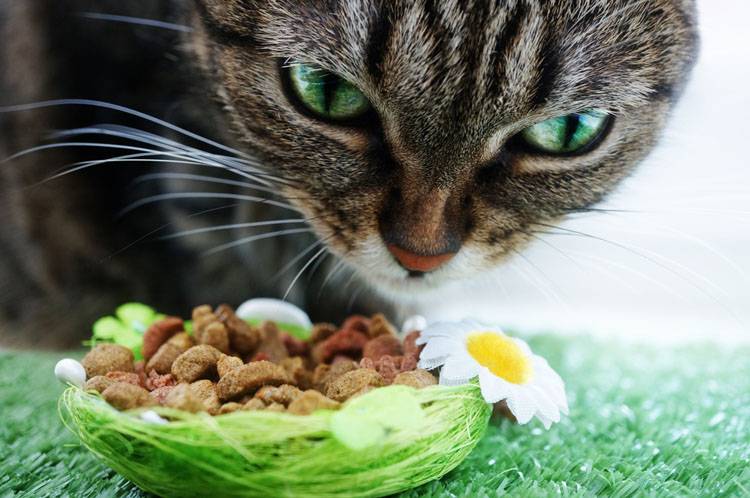Proper Feeding of Your Cat
By Penny Derbyshire-Baldyga
Cats are not dogs (or even people). Therefore, their nutritional needs are different. First, cats are obligate carnivores, meaning they need the specific nutrients in animal tissue to meet their dietary requirements. Due to those specific nutrients, the diets of felines are very strict when it comes to proper feeding.
A cat’s diet must include a good amount of protein, some carbohydrates (dog food usually contains more carbohydrates) and fat. A high-quality cat food supplies the proper amount of protein, carbohydrates and fats along with vitamins, amino acids and minerals. Moreover, as with other pets, they need fresh and clean water.
How to Properly Feed Your Cat
Choose the Best Cat Food
Dry Food
Dry food is generally cheaper for cat owners and can be left out for the cat to eat at leisure. They typically contain 10 percent moisture, which is another reason to have water close by. Dry cat foods have an expiration date, so it’s important to check the bag and store it in a dry, cool location. If you store the food in a container, make sure it’s airtight to prevent nutrient loss.
Canned Food
Some cat foods are designated semi-moist. This means they contain an average of 33 percent moisture. Semi-moist food can also be fed at the cat’s leisure. However, it can lose its taste upon drying out.
Canned food has up to 70 percent moisture, which is a good source of water for cats. However, it’s still important to keep water available at all times. Canned food is usually more appetizing to cats, but also more expensive for owners. Keep in mind that, once opened, canned food needs to be kept in the refrigerator to prevent spoilage.
RELATED: 5 Foods You Should Never Feed Your Cat
Ask Your Veterinarian
When deciding on the best food to feed your cat, ask your veterinarian what she recommends for your cat’s nutritional needs. You should also read the food’s nutritional label and guaranteed analysis. Minimum nutritional requirements for cat food are established by the Feline Nutrition Expert (FNE) Committee of the Association of American Feed Control Officials (AAFCO).
Read the Label
AAFCO is a voluntary membership association of local, state and federal agencies charged by law to regulate the sale and distribution of animal feeds (including pet foods) and animal drug remedies. Pet food labels also have a nutritional adequacy statement, such as complete and balanced, that is verified by AAFCO. In addition, you should always look at the list of ingredients on the label. The protein source, meat, meat meal and/or meat byproducts should be listed first, as ingredients are listed in order of weight.
Lastly, you should follow the food’s feeding directions to ensure you’re giving your cat the right amount for her to maintain a proper weight. For even more information on pet food labels, visit the FDA’s website here.
Sources:
www.vet.cornell.edu
www.pets.webmd.com




